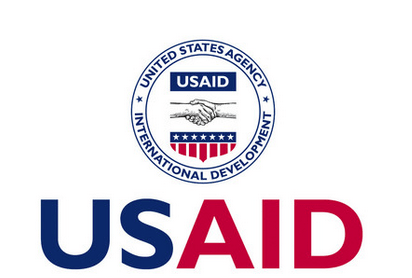 The United States Agency for International Development (USAID) in partnership with the Government of Ghana on Tuesday disseminated a reading evaluation report in Accra to improve on the reading abilities and conceptual understanding of mathematics in basic schools.
The United States Agency for International Development (USAID) in partnership with the Government of Ghana on Tuesday disseminated a reading evaluation report in Accra to improve on the reading abilities and conceptual understanding of mathematics in basic schools.
The step was undertaken after the two bodies had implemented a year-long “Early Grade Math and Reading Pilot Programme” to ascertain the performance of students in the areas of Math and English language, identify the hindrances that contributed to the low performances of students and generate ways to control them.
The evaluation programme used an independent randomised control trial to measure changes in students’ conceptual understanding and performing basic math skills as well as their ability to read.
The purpose of evaluation was to provide evidence of early grade reading programme implemented at scale and to show how mother-tongue programme performs in a multi-lingual implementation context.
The evaluation programme studied 7200 schools from 100 districts across the country.
Mr Mohammed Dawuda, a Representative of USAID with the Evaluating Systems who presented the findings said per the evaluation, the performance of students went down whenever they were hungry while in school or when punished by teachers.
He said it also showed that students in rural areas did not perform better than students in schools in the urban areas, adding that, female students performed better than the male.
The evaluation programme, also identified that schools in which teachers and students were enthusiastic about reading saw the students performing well in reading.
Mr Dawuda noted that the overall language match of schools assessed indicated that 59 per cent had high language match which meant that only 59 per cent could understand what they were being taught in the English Language.
He said 29 per cent of the students had medium language match while 12 per cent had low language match and could not wholly understand what they were being taught in the English Language.
At the end of the evaluation programme, a significant impact was made as both male and female students improved on their conceptual understanding of mathematics and gained more ability to perform basic math skills and read, he said.
Mr Dawuda urged the Ministry of Education and the Ghana Education Service (GES) to provide a more targeted support to non-readers and address school resource levels, students’ assets, and teachers use of punishments.
To promote the use of standard and empirical data to inform decisions, he called on decision makers to work together to ensure that data collected at the district, regional and national levels in relation to education in the country had integrity and was consistently collected.
He reiterated that it was necessary to develop strong data systems to promote data use, not just for reporting, but for planning and performance management.
“While some data is available at the regional level on learning outcomes, those assessments do not provide data that can be consistently used for performance management at the district, school and teachers’ levels,” he said.
He advised the GES to ensure that every teacher had a unique Identification number that is consistent within and across all Education Management Information System data tables and human resource databases.
Dr Yaw Osei Adutwum, the Deputy Minister of Education said the data collected from the longitudinal study had helped government to know how students were performing, the challenges they faced and the exact areas which needed urgent attention in the educational setting.
“We have also gotten to know that when children are well fed, they are more likely to do very well in school so we will re-look at how to expand the School Feeding programme to get the intended results,” he said.
The Deputy Minister noted that it had been observed that more girls were participating in the ongoing Basic Education Certificate Examination (BECE) in the Upper East Region than boys, a change he said called for celebration on progress in the fight for gender parity in the country’s educational system.
Dr Adutwum said in the Greater Accra Region, there were 4,000 more girls writing the BECE than boys which was a true reflection of girls doing well in the educational system.
He said the data had also shown that girls in mixed sex schools performed better academically than boys, therefore, the evaluation programme was necessary to ascertain whether it was because there were more female teachers in the schools or because female students were given more attention or resources to study with.
He commended the USAID for the step undertaken to enhance the Ghanaian educational system and gave the assurance that government was ready to support the Agency in that regard.
Source: GNA























